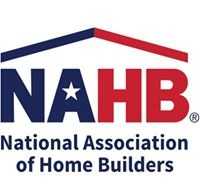WASHINGTON, D.C. – February 28, 2013 – (RealEstateRama) — Salt Lake City home builder and developer Christopher Gamvroulas today told Congress that the E-Verify program is an effective system and offered proposals put forth by the National Association of Home Builders (NAHB) to improve it and to achieve comprehensive immigration reform.
Testifying on behalf of NAHB before the House Judiciary Committee’s Subcommittee on Immigration and Border Security, Gamvroulas said that a viable, mandatory E-Verify program for all U.S. employers is an important step to address the illegal immigration issue.
“Congress must also safeguard our nation’s borders and create a guest worker program that enables construction industry employers to recruit legal immigrant workers when there is a shortage of domestic workers,” said Gamvroulas.
As president of Ivory Development, the largest home builder and land developer firm in Utah, Gamvroulas said that his firm uses the E-Verify employment verification system to ensure it only employs individuals authorized to work in the U.S.
“On the whole, we have found E-Verify to be an efficient system. Generally speaking, it is easy to use,” he said.
However, Gamvroulas noted that the implementation of the system has not been without its problems, and he shared NAHB’s recommendations to improve E-Verify so that it works efficiently for all U.S. employers. Specifically, he urged Congress to:
• Maintain current law as it relates to the direct employer-employee relationship, holding every U.S. employer accountable only for the identity and work authorization status of their direct employees. While employers do not verify the employees of subcontractors, they are precluded from knowingly using unauthorized subcontracted workers as a means of circumventing immigration law.
• Make sure that any compulsory federal E-Verify program contains a robust safe harbor for employers so that those who use the system in good faith will not be held liable by the U.S. Department of Homeland Security, or by the employer’s workers, for errors in the E-Verify system. While the agencies have worked diligently to reduce error rates, the nationwide use of the system could lead to an increase in errors as more workers are run through the program. Moreover, until E-Verify can detect cases of fraud, employers who use the system should not be held accountable for unauthorized workers who have cleared the system because of identity theft.
• Ensure that any legislation that requires the use of E-Verify by all U.S. employers includes a strong pre-emption clause, preventing state and local governments from creating and enforcing their own versions of verification requirements for employers.
• Allow employers to begin the E-Verify process when a worker accepts a position, rather than be required to wait until after their start date. “Allowing us to verify our workers’ status the day they accept the job offer will give us more lead time to handle tentative non-confirmations for those who are ineligible to work,” said Gamvroulas.
• Permit the system to provide telephone access as well as Internet access. “Since most NAHB members have 10 or fewer employees and many workers spend their days out on the job site, this will ensure that the system is workable for our nation’s smallest employers,” said Gamvroulas.







